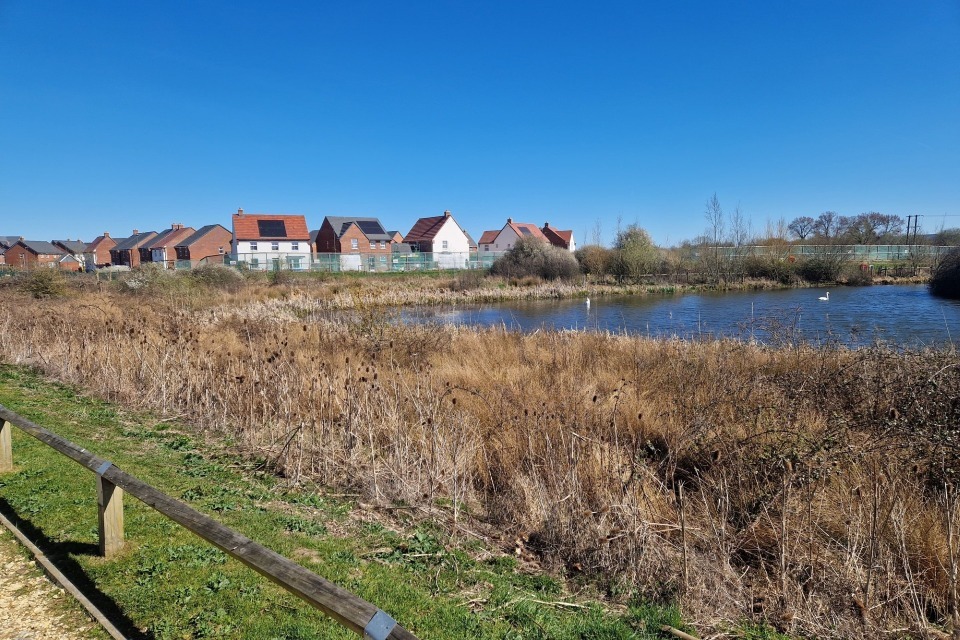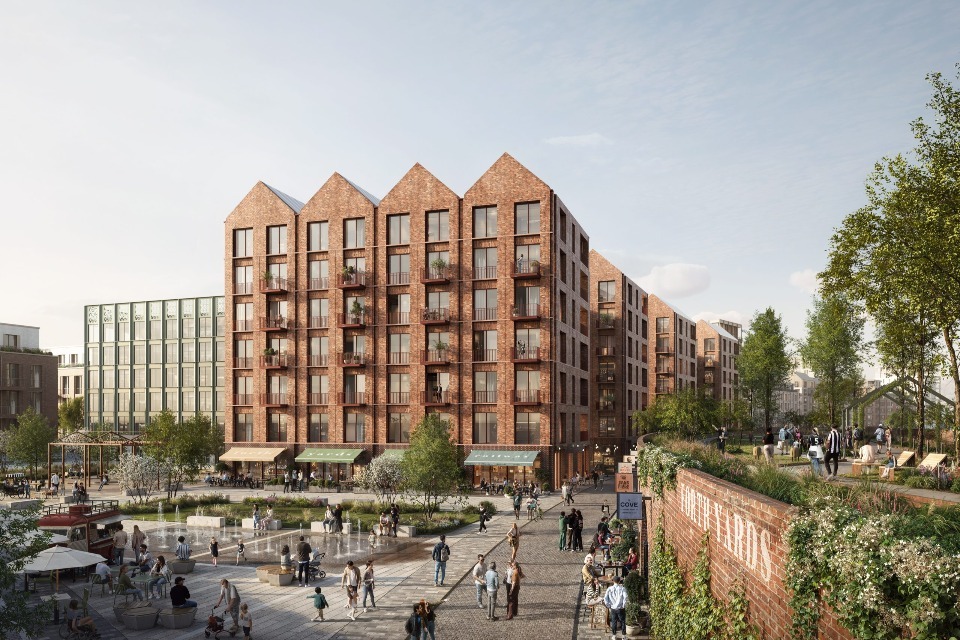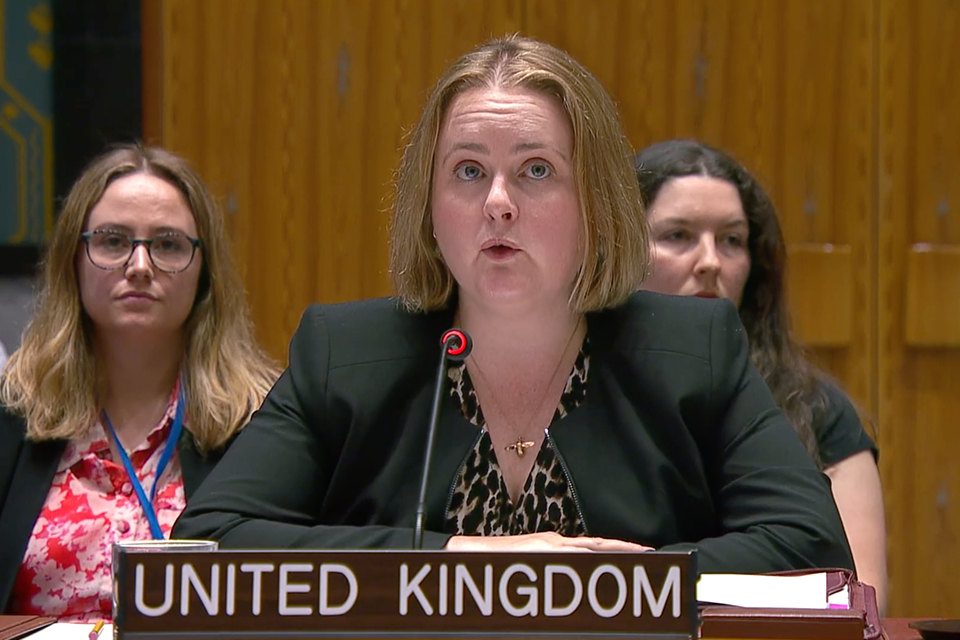First-time home buyers and local communities will reap the benefits as Britain’s broken planning and development system is rewired to accelerate infrastructure delivery and homebuilding while safeguarding the environment under the Plan for Change.
Environmental planning reforms will be backed by £500 million, which includes funding for the government’s flagship Nature Restoration and Marine Recovery Fund schemes and funding to build capacity in the planning system. This will help to process planning applications faster and help developers bring their projects to life, without compromising on environmental protections – ensuring we build 1.5 million homes and fast-track 150 planning decisions on major infrastructure projects by the end of this Parliament.
The Lower Thames Crossing – set to cut congestion for motorists and drive growth across the country – will become the first major UK infrastructure project to have one lead environmental body in charge. A clear, single point of contact will cut the time it takes to secure planning permissions and approvals for large-scale developments, boosting project certainty and minimising costs and delays.
Moreover, communities across Britain will benefit from new transport, energy and housing schemes sooner, thanks to a new dedicated body that will address planning issues early to keep critical projects on track.
The Defra Group Infrastructure Board will help accelerate the planning process for at least 50 major infrastructure projects, including Hinkley Point C, East West Rail and Heathrow expansion.
Early oversight will help to identify challenges such as those faced by HS2 in building the bat tunnel, meaning that for future similar situations alternative solutions to meet environmental obligations can be explored earlier in the process – ensuring proportionate decisions are made and reducing costs and delays.
Steve Reed, Secretary of State for Environment, Food and Rural Affairs, said
“People can’t find affordable homes to live in because Britain’s broken planning system has blocked building work, and that’s pushed up prices.
“These changes will get spades in the ground quicker so developers can build the homes families need.
“This is all part of the Government’s Plan for Change that will boost the economy and create jobs by building more homes and also provide new funding from developers to benefit nature.”
Deputy Prime Minister and Housing Secretary Angela Rayner said
“We have been stuck with a status quo that has stopped us building the homes we need, and has done nothing for nature’s recovery.
“Communities deserve better, that’s why we’re pushing ahead with our pro-growth reforms to not only deliver vital homes and infrastructure, but drive real, lasting recovery for the environment.
“This is another step towards our 1.5 million homes Plan for Change target which will restore the dream of homeownership, end the housing crisis, and boost economic growth across the country.”
The measures announced today build on a £500 million funding package announced as part of the government’s 10 Year Infrastructure Strategy. This funding will give the planning system a boost to help build the homes families need whilst supporting nature recovery on land and at sea at scale. As recommended by the Corry Review, it will increase the capacity of Natural England and the Environment Agency to process planning applications faster, through the use of spatial planning and digital technologies. This will not only help to improve our natural environment but also enable delivery of vital national infrastructure such as wind farms, railways, gigafactories and data centres.
The new Lead Environmental Regulator approach will end the merry-go-round of developers dealing with multiple, overlapping authorities. Instead, one environmental regulator will deliver a coordinated response on behalf of all regulators. Natural England will take on this role for the Lower Thames Crossing, working seamlessly with the Environment Agency and Marine Management Organisation to provide joined-up advice.
This government is clear; we will no longer accept Britain’s rigid system of regulation as the status quo. Regulators and regulation must work for the people of Britain, not get in the way of progress.
By facilitating greater collaboration and stronger oversight within Defra and its arm’s-length bodies, the new Infrastructure Board will overcome bureaucratic barriers and keep projects moving at pace. It will closely monitor an evolving list of significant infrastructure projects, including renewable energy projects critical to meeting the 2030 clean power mission. These could include offshore wind and solar farms, electricity transmission lines, and other nationally significant infrastructure projects.
This package demonstrates rapid delivery of high-impact recommendations from a landmark review of environmental regulation, led by former Head of the No10 Policy Unit Dan Corry and commissioned by Steve Reed. Of the 29 recommendations published in April 2025, 9 are already being fast-tracked by Defra, with the government actively considering next steps on the remaining 20.
This represents a significant step forward in delivering on the government’s Plan for Change commitment to build 1.5 million homes this Parliament and fast-track 150 planning decisions on major infrastructure – more than double the number decided in the previous Parliament.
Notes to editors
-
The Nature Restoration Fund will enable infrastructure builders to meet their environmental obligations faster and at greater scale by pooling contributions from developers to fund larger strategic interventions for nature. This approach will mean the burden of individual site-level assessments and delivering mitigation and compensation is reduced. Further information is on gov.uk.
-
The Marine Recovery Fund will deliver industry-funded, strategic measures to compensate for adverse effects of offshore wind developments on marine protected areas – supporting the Clean Power Mission.
Lead Environmental Regulator
Marian Spain, Chief Executive of Natural England, said
Infrastructure, housing and nature are not competing interests. Sustainable development and nature recovery must go hand in hand, and urgent action is needed to restore our depleted nature and build desperately needed homes and infrastructure.
That’s why we’re proud to be the Lead Environmental Regulator delivering the Lower Thames Crossing. This model brings developers and all the regulators together to agree how to avoid environmental harm and plan opportunities for nature recovery, so streamlining the approvals process.
Matt Palmer, Executive Director, Lower Thames Crossing, said
As one of the Britain’s most important economic infrastructure projects we are delighted to be the first to work with a Lead Environmental Regulator. Driving economic growth and enhancing nature are at the heart of the Lower Thames Crossing. As we gear up to start construction, this new approach will help us to move at pace, while ensuring we protect the natural environment and meet our environmental commitments.”
On Lower Thames Crossing
-
The Lower Thames Crossing will be a new road crossing connecting Kent, Thurrock and Essex. Approximately 14.5 miles (23km) in length, it will connect to the existing road network from the A2/M2 to the M25 with two tunnels (one southbound and one northbound) running beneath the River Thames.
-
The Lead Environmental Regulator pilots will test a new operating model for how environmental regulators support major development projects. The project team is working with developers and regulators to identify suitable projects on which to pilot the approach. These pilots will test new ways of working and team structures including
-
Better coordination – through clear named contacts for developers, who will coordinate all input, push work ahead at an appropriate speed and resolve issues.
-
Ensuring coherent advice across regulators to give developers a single view.
-
Streamlined processes sharing data, information and expert advice across all regulators to build a shared project understanding, improve coordination and accelerate decisions.
-
Resolving issues to escalate quickly where there is disagreement or divergence, by identifying causes, resolving them and reaching consensus before involving developers or other stakeholders. Proposed innovative solutions will be resolved at working level or escalated quickly, including to the Infrastructure Board. Defra will consider the use of Ministerial powers to unblock issues if necessary.
-
Set a proactive, energetic and “can-do” culture across regulators which is focused on enabling development whilst protecting and improving the environment.
On Infrastructure Board
-
The Board will not pre-empt or influence the consenting process, which will continue to be overseen by the Planning Inspectorate.
-
The measures announced today support many of the commitments in the government’s 10-year infrastructure strategy. For example, the Defra Infrastructure Board will help support fast-tracking 150 planning decisions on major infrastructure projects by the end of this Parliament.








